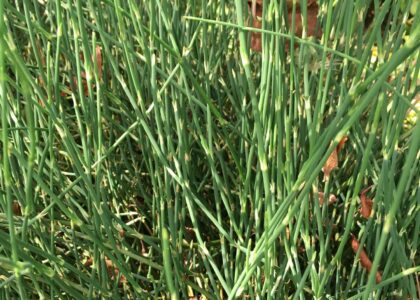Understanding Basa Fish
Basa fish is commonly farmed in freshwater environments, particularly in Vietnam and other parts of Southeast Asia. It belongs to the catfish family and is known for its white flesh, mild taste, and tender texture. Basa is often sold as frozen fillets and is a popular choice for various culinary applications, including grilling, baking, and frying.
Nutrition Profile of Basa Fish
Basa fish is low in calories but rich in protein, making it a nutritious option for those looking to increase their protein intake without consuming excess calories. Here’s a breakdown of the nutritional content of a 100-gram serving of basa fish:
- Calories: Approximately 90 calories
- Protein: Around 16-20 grams
- Fat: Approximately 2-4 grams, primarily unsaturated fats
- Carbohydrates: Minimal, typically less than 1 gram
- Omega-3 Fatty Acids: Basa fish contains omega-3 fatty acids, although in lower amounts compared to fatty fish like salmon or mackerel.
- Vitamins and Minerals: Basa fish provides essential nutrients such as vitamin D, vitamin B12, selenium, and phosphorus.
Health Benefits of Basa Fish
Rich Source of Protein
Basa fish is a high-quality protein source, essential for muscle repair, immune function, and overall health.
Low in Calories
With its low calorie and fat content, basa fish can be part of a calorie-controlled diet for weight management.
Omega-3 Fatty Acids
While not as abundant as in fatty fish, basa still provides omega-3 fatty acids, which are beneficial for heart health, brain function, and reducing inflammation.
Nutrient Dense
Basa fish contains various vitamins and minerals, including vitamin D, vitamin B12, selenium, and phosphorus, which play essential roles in maintaining overall health.
Concerns and Potential Dangers
While basa fish offers several health benefits, there are also concerns associated with its consumption:
Environmental Impact
Basa fish farming practices, particularly in certain regions, may raise environmental concerns related to water pollution, habitat destruction, and the use of antibiotics or chemicals.
Contaminants
Like other types of fish, basa may contain environmental contaminants such as mercury, polychlorinated biphenyls (PCBs), and dioxins. However, the levels are generally lower compared to larger, predatory fish.
Quality and Origin
The quality of basa fish can vary depending on factors such as farming practices, feed quality, and processing methods. It’s essential to source basa fish from reputable suppliers to ensure safety and quality.
Allergies
Some individuals may be allergic to basa fish or other types of catfish, leading to allergic reactions such as hives, swelling, or difficulty breathing. If you have a known fish allergy, it’s crucial to avoid basa fish and other seafood products.
FAQs About Basa Fish
Is basa fish safe to eat?
Yes, basa fish is generally safe to eat and can be part of a balanced diet. However, it’s essential to choose basa fish from reputable sources and be mindful of any environmental or contamination concerns.
How does basa fish compare to other types of fish nutritionally?
Basa fish is lower in calories and fat compared to fatty fish like salmon or mackerel but provides similar amounts of protein. It also contains omega-3 fatty acids, although in smaller quantities.
Are there any health benefits to eating basa fish?
Yes, basa fish is a good source of protein, omega-3 fatty acids, and essential vitamins and minerals. It can support muscle health, heart health, and overall well-being when consumed as part of a balanced diet.
What are the best ways to cook basa fish?
A4: Basa fish is versatile and can be cooked in various ways, including grilling, baking, frying, or steaming. It has a mild flavor that pairs well with a variety of seasonings and sauces.
Are there any specific populations that should avoid basa fish?
A5: Individuals with fish allergies or sensitivities should avoid basa fish and other types of seafood. Pregnant or breastfeeding women may also want to limit their consumption of certain fish due to potential contamination concerns.
How can I ensure the basa fish I buy is safe and of high quality?
A6: To ensure the safety and quality of basa fish, purchase it from reputable suppliers or retailers that follow sustainable fishing practices and adhere to food safety standards. Look for certifications such as the Aquaculture Stewardship Council (ASC) or Best Aquaculture Practices (BAP).
Are there any sustainable alternatives to basa fish?
Yes, several sustainable alternatives to basa fish are available, including tilapia, trout, catfish (from sustainable sources), and certain types of farmed or wild-caught seafood. Look for eco-friendly certifications and choose seafood that is harvested or farmed responsibly.
Conclusion
Basa fish can be a nutritious and affordable option for incorporating seafood into your diet, offering a rich source of protein, omega-3 fatty acids, and essential vitamins and minerals. While there are concerns associated with its consumption, such as environmental impact and potential contaminants, these risks can be mitigated by sourcing basa fish from reputable suppliers and being mindful of quality and origin. By incorporating basa fish into a balanced diet and enjoying it in moderation, you can reap its health benefits while minimizing potential drawbacks. As with any dietary choice, it’s essential to consider individual preferences, dietary needs, and sustainability concerns when incorporating basa fish into your meals.
- Juvederm Volite Skin Booster Treatments Near Badshot Lea, Surrey - May 4, 2025
- Cheek Filler Near Ham, Surrey - May 3, 2025
- Jalupro Super Hydro Skin Booster Treatments In Kingston Upon Thames KT1 - May 2, 2025







